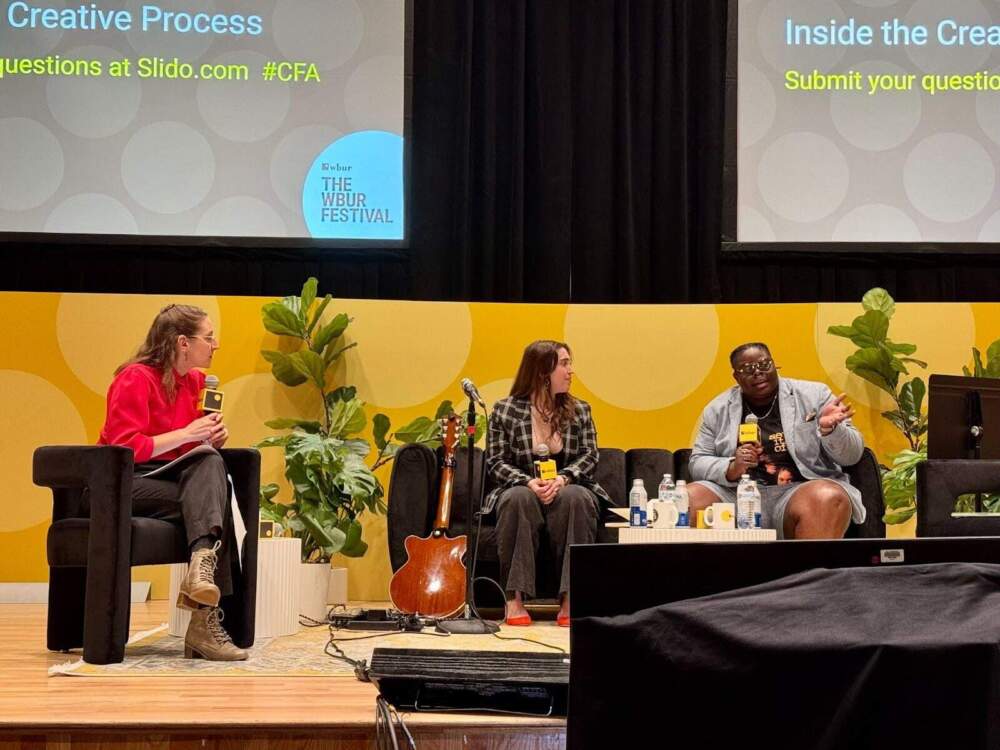Editor’s Note: This story is an excerpt from WBUR’s weekly arts and culture newsletter, The ARTery. If you like what you read and want it in your inbox, sign up here.
The creative process can feel mystifying. Listening to a song or reading a beautiful poem can make you wonder how these makers sit down and develop their work. It can even be unclear to the artists themselves.
The process was the topic of a conversation at The WBUR Festival this past weekend between WBUR Host and Senior Podcast Producer Amory Sivertson, NPR Tiny Desk winner and local singer-songwriter Alisa Amador, and former Boston Poet Laureate Porsha Olayiwola.
It was interesting to hear the stark contrast in the ways they approach their work. For Amador, the songs come to her in an almost spiritual manner. “ I don’t actually remember clearly what happens when I write a song. It’s kind of like a trance state or a dream state,” she said.
She starts playing her guitar, and the words and rhythms move through her. It’s not always easy to arrive at that place, but once she’s there, it’s a magical experience.

For Olayiwola, her poems can take years to complete. She shared three poems ruminating on Whitney Houston and her daughter Bobbi Kristina Brown, who both drowned in bathtubs. These poems have been in the works for four to five years, and Olayiwola said she is still developing them.
With such different approaches, where do emerging creatives looking for guidance start?
Amador said people need to stay curious and inquisitive about the world around them.
“An essential part of the creative process is just to be in touch with your inner child who didn’t judge what you were making or thinking,” she said.
Amador also carries a small unlined notebook around with her wherever she goes as a “no rules space.” She might doodle or write down her grocery list or write lyrics to a new song. It’s a space for her to explore without restriction.
In creating new work, Olayiwola expressed the importance of just getting down a first draft. She advised audience members to “just do the thing.” It can be difficult to figure out where to start when embarking on a creative project, but the best thing you can do is just do it. She added it’s crucial to be in community when creating.
Advertisement
“ By making sure you’re surrounding yourself and finding — I think sometimes you gotta dig for community — but I think being with those folks will inspire you,” Olayiwola said.
Both artists spoke about the importance of letting go of perfection.
This sentiment reminded me of my first semester of college when I didn’t pitch stories to any school publications because I didn’t think I was a good enough writer.
I finally allowed myself to “make bad art,” as Amador said. I published an article. And then another one. They weren’t great looking back, but I couldn’t become a good journalist without practicing my craft and putting out stories.
Because of my leap of faith, I secured a co-op at The Boston Globe that kickstarted my career, and I made it here to WBUR. If you take anything away from this week’s newsletter, please go out and make bad art because it may lead you to unexpected and beautiful places.
